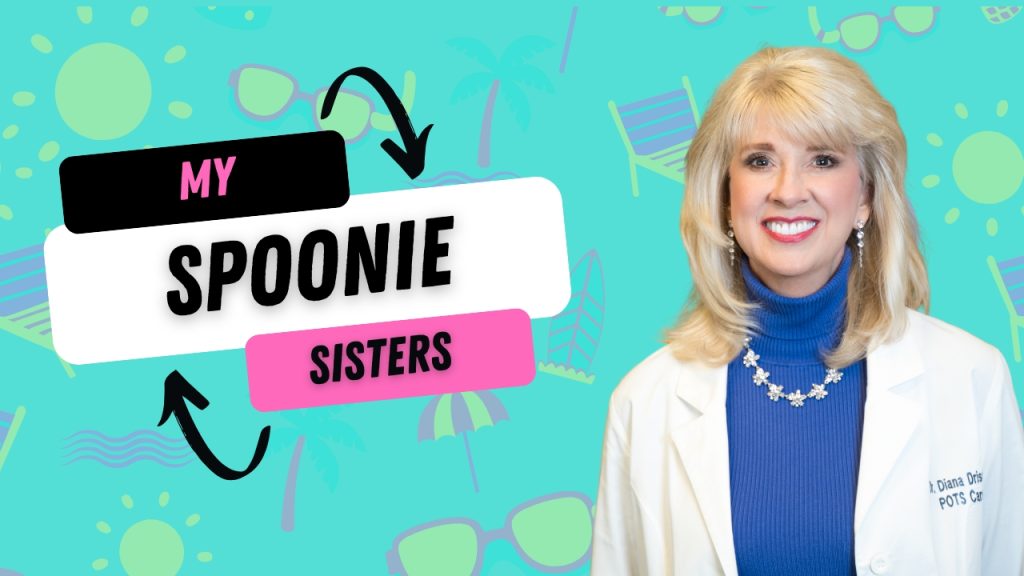
Dr. Diana Driscoll’s journey from disabled patient to groundbreaking researcher offers hope to thousands suffering from misunderstood autonomic disorders. Her story began approximately 20 years ago when a simple virus triggered a cascade of debilitating symptoms that forced her to abandon her optometry practice almost immediately. What doctors initially dismissed as anxiety or heightened body awareness was actually Postural Orthostatic Tachycardia Syndrome (POTS), but the diagnosis was just the beginning of her struggle. When her children also developed similar symptoms years later, Dr. Driscoll realized there must be genetic factors at play and founded Genetic Disease Investigators to uncover the true causes of their conditions.
The medical establishment offered little help. After consulting with over 50 doctors and participating in clinical trials, Dr. Driscoll was horrified when researchers suggested patients like her were “perfectly normal, just more aware of their bodies” despite being bedridden and severely disabled. This dismissive attitude became the catalyst for her determination to find answers not only for herself but for her children – particularly her son who, at just nine years old, told her he couldn’t endure another day of suffering. The situation became even more urgent when her son developed severe osteoporosis, breaking his arm simply from throwing a ball or putting on his coat.
Dr. Driscoll’s research led to the development of “The Driscoll Theory,” which identified three critical commonalities among patients with autonomic dysfunction. First, many patients experienced high intracranial pressure, but not with the classic symptoms doctors are taught to look for. Instead of typical headaches, patients exhibited a distinctive coat-hanger tightness at the base of the skull, severe insomnia resistant to medication, and significant brain fog. Second, inflammation was attacking the cardiovascular system, particularly damaging the endothelium (inner lining of blood vessels) and triggering receptors on the heart that caused tachycardia. Third, and perhaps most overlooked, was vagus nerve dysfunction affecting digestion, gallbladder function, and nutrient absorption.
The implications of these findings were profound. Dr. Driscoll discovered that traditional POTS treatments – high salt intake, beta blockers, and medications to increase blood volume – were actually making patients worse by further damaging the vascular endothelium, worsening intracranial pressure, and intensifying depression. This revelation explained why so many patients failed to improve under conventional care protocols. Even more alarming was her realization that severe nutritional deficiencies were developing due to malabsorption, leading to her son’s osteoporosis and even causing hallucinations in her own case.
Through meticulous research, Dr. Driscoll identified a neurotransmitter deficiency affecting the vagus nerve. After developing targeted supplementation (now patented as Parasym Plus), she and her family began the journey to recovery. Today, both of her children lead normal, active lives – a outcome she wishes someone could have promised during their darkest days. Her work has resulted in five patents related to autonomic nervous system function, and she continues to help patients through POTS Care, offering specialized testing and individualized treatment plans that address the root inflammatory causes rather than merely managing symptoms.
Dr. Driscoll’s message to fellow “spoonies” remains consistently hopeful: there is always a reason for illness, proper diagnosis is possible, and recovery is achievable with the right approach. She advocates for less invasive treatments and better diagnostic labels that move beyond simplistic designations like “chronic fatigue syndrome” or “anxiety” that do little to address underlying causes. For those feeling overwhelmed by complex symptoms and dismissive medical encounters, her journey stands as powerful testament that persistence in seeking answers can ultimately lead to healing, even when the medical establishment has given up.
- Dr. Diana Driscoll. Expert on POTS Syndrome. The Patient’s Researcher
- https://drdianadriscoll.com/
- Unmasking Autonomic Dysfunction
